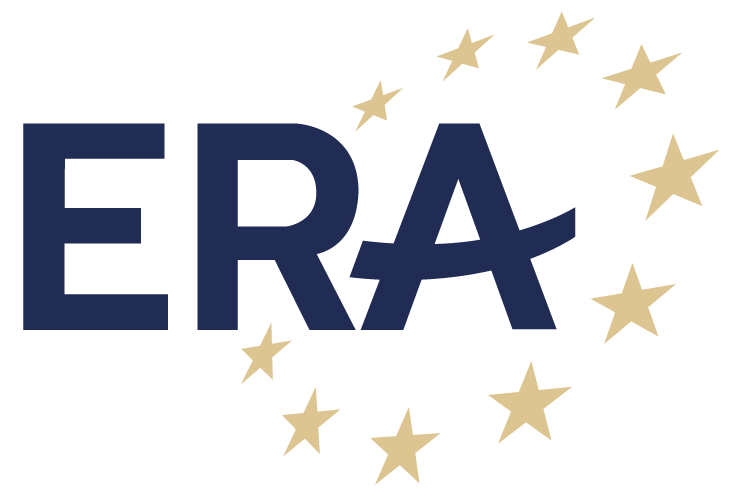Conferences
and legal policy debates


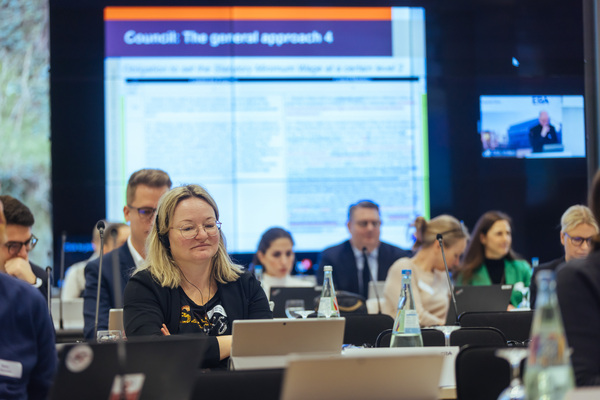

A comprehensive programme
of annual conferences
Events on very specific topics
The Metaverse is a virtual space characterised by the interaction of physical and digital realities in a shared online system. Business is investing heavily in the Metaverse, but how fast (and how hard) will the Metaverse hit the criminal justice system? In a world where cybercrimes, phishing attacks, misuse of cryptocurrencies and cyberbullying are key challenges for EU legal practitioners, will our current criminal justice systems be effective? How should values and rights from the physical world be translated and applied in this new reality? This event looked into some of these key potential challenges and opportunities and debated why these developments should be a matter of concern for the criminal justice system.
Nine months prior to the new Unified Patent Court (UPC) starting work in June 2023, ERA, in cooperation with Maastricht University, commenced its first course for patent attorneys. This target group is new for ERA, presenting the academy with new challenges, especially in terms of learning methodology. The aim of this course leading to the European Patent Litigation Certificate is to provide professional training designed to meet the needs of patent attorneys wishing to appear before the new Court. The course, which obtained accreditation from the Administrative Committee of the UPC in April 2023, offered a completely innovative concept. The participants were offered blended learning, mixing online and practical face-to-face sessions. e-Learning including e-presentations and other online materials were provided to participants and discussed during two-hour live online sessions conducted by tutors every two or three weeks from 17:00 to 19:00. The e-learning environment facilitated individual, collaborative and interactive learning, and offered a way for participants to test and track their own progress throughout the curriculum. The course also contained on-site week-long sessions conducted in Trier, during which core topics of patent litigation were presented. Moot courts constituted the central element of these face-to-face sessions, during which patent attorneys were asked to prepare a defence and represent parties in patent validity and infringement cases in role-play scenarios before a jury composed of patent litigators and judges of the Unified Patent Court. Together with an oral examination that took place in May 2023, these moot courts were part of the examination leading to the certificate. The first course was organised as a test run and was limited to 20 participants. The second EPLC course running in 2023 and 2024 is fully booked.
In March 2023 ERA organised its regular event on EU litigation for agents acting for Member States and EU institutions before the Court of Justice of the EU. This seminar aimed to provide civil servants with training on practical aspects of proceedings before the CJEU and was offered remotely. The programme consisted of presentations on procedural questions and tips on working in a multilingual environment, as well as a practical exercise on oral presentation before the court.
In 2023 ERA offered three events on EU Staff Regulations: a summer course (in person) as an introduction to this area of law, an online seminar on EU Civil Service Law which focused on selected legal questions, and an online event on recent case law of the Court of Justice of the EU in staff cases, which presented the most important judgments of the previous 12 months.
In December 2023, ERA organised a webinar on “Protecting Rights of LGBTIQ+-Persons”. The webinar aimed to provide participants with an in-depth understanding of the rights of LGBTIQ+ individuals. To this end, it evaluated the current policies and strategies by EU institutions and provided a detailed overview of the case law of the CJEU and ECtHR. The highlight of the webinar was the session on how to litigate LGBTIQ+ cases in Europe, trauma-based lawyering and the risk of victimisation.
In May 2023, ERA organised an online seminar on “Recent Developments in European Corporate Tax Law” addressed to tax practitioners and civil servants, as well as to judges and prosecutors seeking an update on the latest developments in legislation and jurisprudence on corporate taxation. The programme of the event included an update from the European Commission on its latest activities, a session on the recent case law of the CJEU, as well as several presentations on current corporate tax topics, such as the minimum taxation of the largest companies (Pillar 2) and the fight against tax avoidance and evasion (ATAD 3). The online event was attended by 59 participants and speakers from 16 different countries. The majority of the participants were national judges.
In November 2023, ERA organised a webinar on “Corporate Sustainability and Responsibility in the EU – European Legal Framework for the Intersection of Business, Environment and Human Rights”. The role of business in society and its impact on the people and the planet has been the focus of discussions for a long time. The shape of corporate responsibility has proven to be dynamic, and ESG (Environmental, Social and Governance) measurements are evolving despite the complexities and controversies. Questions arise regarding what companies’ responsibilities should be in protecting the environment and human rights, which aspects of business it should encompass, and what consequences there should be. With this webinar ERA brought together specialists from different backgrounds to discuss the current status of European legislation and policy in this field, as well as developments foreseen.
Liability for products and artificial intelligence was the subject of a stimulating debate during a 2-day webinar in March 2023. Three major European Commission proposals in the legislative process formed the basis of the debate: the forthcoming AI Act, the proposed AI Liability Directive (AILD) and the revision of the Product Liability Directive (PLD). These highly debated proposals, which aim to adapt liability rules to the digital age, have far-reaching implications for the product liability regime at both national and European level. The impact of these closely related proposals and the best way forward were discussed by 50 participants from 20 different countries.
The Association of EU Data Protection Judges (AEDPJ) was founded in 2021 with the support of ERA. In 2023, ERA continued its salient work in the field of data protection law. Currently the association is composed of 34 members, 14 of whom joined the AEDPJ in 2023. In order to fulfil its supporting mission, ERA organised a conference and two webinars in 2023. The seminar on recent case law of the European Court of Human Rights and of the Court of Justice of the EU on privacy and data protection, which was attended by more than 40 legal practitioners, focused on notable judgments delivered since 2022. In response to recent legislative developments related to the implementation of the European Strategy on Data, ERA organised new webinars on “Data Governance in Europe” as well as on the Digital Services Act (DSA) and the freedom of expression. The aim of the latter was to address mechanisms and legal solutions as foreseen in the DSA, aiming at finding the right balance between the need to protect freedom of expression, the conditions of the digital world and the interests at stake. The seminar on Data Governance in Europe addressed regulatory tendencies laid down i.a. in the Data Act, Data Governance and AI Act, and provided the opportunity to discuss current legal reforms with high-level experts in the field.

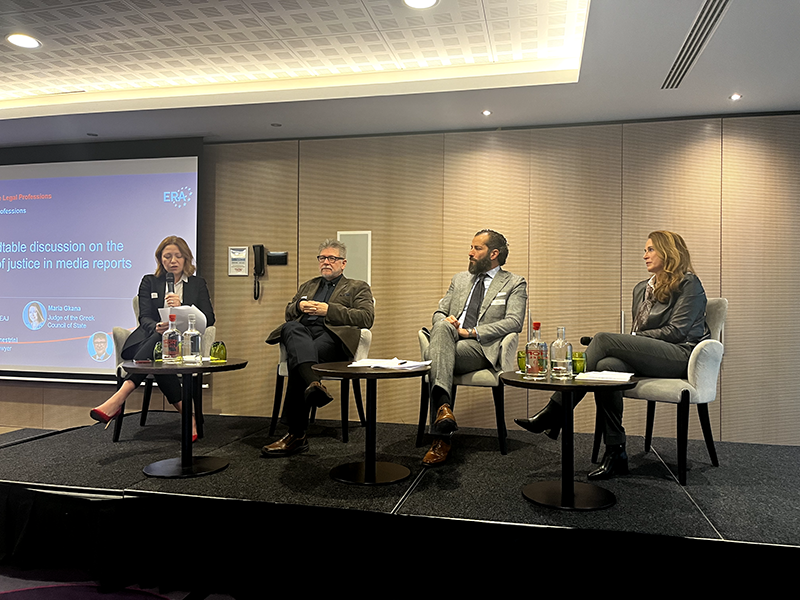
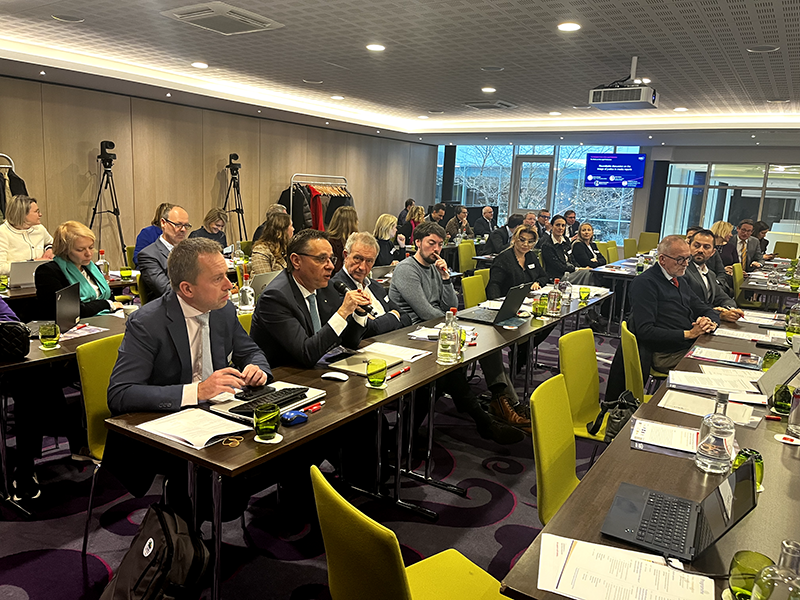
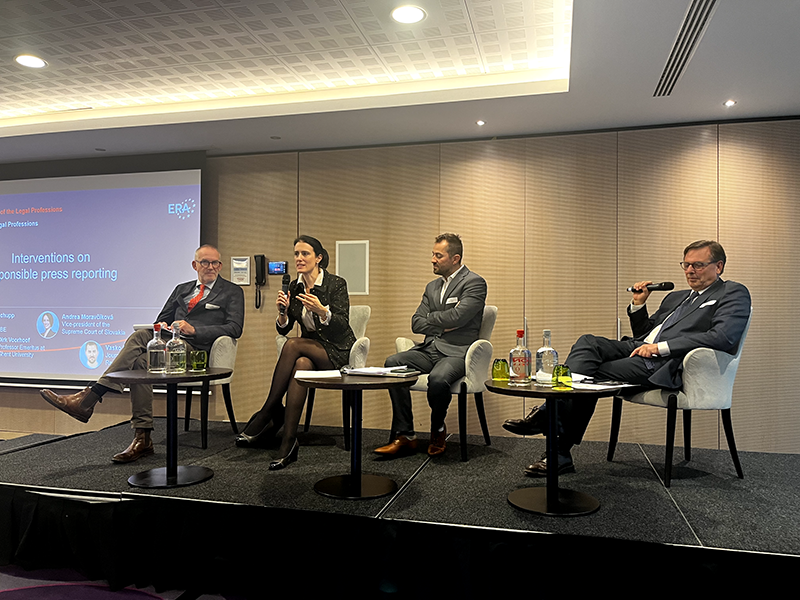
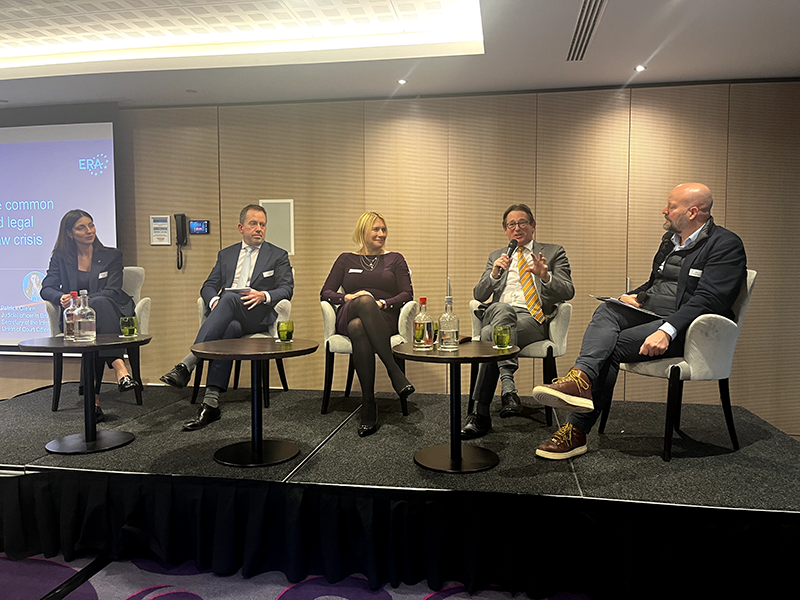
“The Media and the Legal Professions: Trust in the Judiciary Requires Trust in the Media – Enhancing Cooperation between Two Pillars of Democratic States”
A platform for the discussion of legal policy
In 2022 ERA created the European Forum for the Legal Professions, which aims to launch a structured dialogue among the representatives of the professions where common challenges and concerns could be addressed and analysed at EU level. The Forum became a collaborative and evolving project among these professions, where ERA plays the role of a facilitator. In 2023 ERA organised the second conference of the Forum entitled “The Media and the Legal Professions: Trust in the Judiciary Requires Trust in the Media – Enhancing Cooperation between Two Pillars of Democratic States”. The hybrid event organised in Brussels attracted over 400 legal practitioners. In 2023 ERA also launched a dedicated website for the Forum, where all presentations and background material were published after the conference.
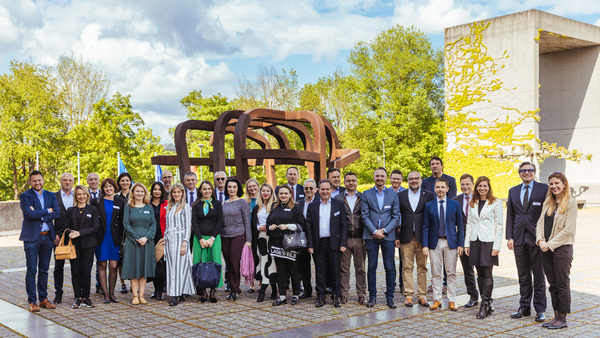
Closer cooperation
with the Western Balkan countries
In cooperation with the Serbian Judicial Academy, ERA implemented a seminar on cybercrimes in Belgrade on 19-20 September 2023. The seminar aimed at sharing advanced knowledge and exchanging experience and best practice among Serbian judges, prosecutors and lawyers in private practice who deal with criminal proceedings involving computer forensics, e-evidence, open-source intelligence tools, crypto currencies and artificial intelligence. The seminar with simultaneous interpretation was attended by 30 Serbian legal practitioners.
Another seminar was organised in partnership with the Albanian School of Magistrates in Tirana, focusing on environmental crimes in the EU. The aim of this 1.5-day seminar was to provide participants with an introduction to the main EU provisions on combating environmental crime. The seminar shed light on the protection of the environment through criminal law, with a special focus on different areas of environmental protection, including wildlife trafficking, illegal fishing, water and waste crime, wildlife crime and deforestation. By addressing these issues, the handling of future national court proceedings in this field should be facilitated. It was attended by 26 Albanian and Kosovar judges, who gained a sense of the EU’s policies on environmental crime, their implementation at national level and their implications for prosecutorial, investigative and judicial work.
